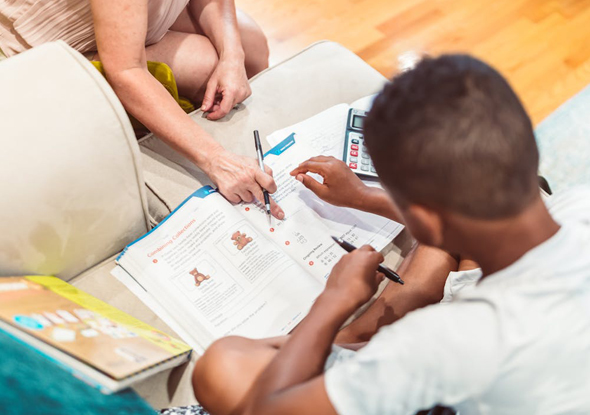Managing Children’s Screen Time in Shared Custody: A Practical Guide for UK Parents

- This blog contains affiliate links, which we may receive a commission for purchases. The decision is yours, whether or not you decide to buy.
Screen time is now a normal part of family life, with nearly every child owning a smartphone. According to Ofcom’s 2023 report, 97% of children aged 12 in the UK have their own smartphone. While technology brings many benefits, it also raises new challenges—especially for separated parents who share custody.
When children move between households, managing smartphone use and online safety can become complicated if parents have different rules or concerns. This guide explores the risks of screen time, common co-parenting challenges, and practical strategies to keep your child safe and supported in the digital age.
Why Managing Screen Time Matters
Recent studies show that 25% of children and young people exhibit addictive screen behavior. Excessive screen time has been linked to increased anxiety, depression, and psychological distress. Social media algorithms can also expose children to harmful content, such as violent or misogynistic material.
For children in separated families, inconsistent rules between homes may cause confusion or lead to risky online behavior. Without a shared approach, children might test boundaries or play parents against each other, increasing stress for everyone involved.
Common Co-Parenting Challenges with Technology
Separated parents often face disagreements about:
- How much screen time is appropriate
- When children should get their first smartphone
- What apps or social media platforms are allowed
- Whether to use location tracking or parental control appss
Each parent has parental responsibility and can make day-to-day decisions, but differing views on technology can cause conflict and anxiety.
Tips for Navigating Shared Custody and Screen Time
1. Communicate Openly and Respectfully
Create space for honest conversations with your co-parent about your concerns and goals. Listen carefully to their perspective and try to find common ground.
2. Set Clear and Practical Boundaries
Agree on realistic screen time limits, rules about device use during homework or meals, and app approvals. Flexibility helps maintain consistency without controlling your co-parent.
3. Stick to Your Values During Your Parenting Time
You can’t control your ex’s choices, but you can enforce your own rules when your child is with you. Be patient—children usually respect consistent boundaries over time.
4. Educate Your Child About Online Safety
Teach your child how to protect their personal information, recognize online risks, and come to you if they feel uncomfortable. Empower them rather than scare them.
5. Use Technology Wisely
Parental control apps, antivirus software, and VPNs can help monitor and protect your child online without invading privacy. Discuss their use openly with your co-parent.
6. Seek Support When Needed
If disagreements escalate, consider mediation or legal advice to include technology clauses in your parenting plan. Parenting support groups can also provide valuable advice
Frequently Asked Questions About Co-Parenting and Screen Time
When is the right age to give a child a smartphone?
Ofcom’s 2023 report shows 97% of UK children aged 12 have smartphones. Still, many experts advise waiting until age 14 to help kids develop the maturity to handle online risks responsibly.
How can I protect my child from online bullying in shared custody?
Online bullying affects about 1 in 4 UK children (NSPCC). Keep open communication with your child, monitor their social media use, and collaborate with your co-parent to respond quickly to any issues.
What if my ex refuses to enforce screen time rules?
Enforce your own rules during your parenting time and maintain calm communication. If needed, mediation or legal advice can help formalize agreements on technology use.
Are there legal ways to enforce digital parenting agreements?
Courts typically reserve intervention for major child welfare concerns. Digital parenting agreements can be included in parenting plans but work best when parents reach mutual understanding, often through mediation.
How do I talk to my child about online safety without causing fear?
Be open and reassuring. Use age-appropriate language and empower your child to make safe choices. Let them know they can always come to you with questions or concerns.
Sources Ofcom (2023), Children and Parents: Media Use and Attitudes Report NSPCC, Bullying and Cyberbullying Statistics UK Safer Internet Centre, Parents and Carers Guidance Children Act 1989, UK Legislation
Final Thoughts
Co-parenting in the digital age isn’t easy, but by working on communication, setting clear boundaries, and educating your child, you can protect their wellbeing across both homes. Focus on what you can control and keep your child’s safety and happiness at the heart of every decision.
For more support and resources on co-parenting and digital safety, visit divorcedparents.co.uk.
Disclaimer: This blog post is for informational purposes only and is not a substitute for professional advice or treatment. The author and publisher do not guarantee the accuracy or completeness of the information and are not liable for any damages resulting from its use. Please consult a qualified professional for advice specific to your situation.
PHOTO CREDIT: COTTONBRO STUDIO
You may also like
Books
Buy now from Amazon
Podcast
Sara Davison has created Heartbreak to Happiness podcast. If you’re hurting or struggling with a break up and you’re feeling shocked, betrayed, devastated, and alone then this podcast is for you. Now is the best time to minimize your own suffering in this process by listening in on the most empowering and best relationship advice available.
Articles
Videos
Practical advice and tips from professionals on what to do with issues and challenges around divorce from parenting to finance.
Events
Practical tips & advice designed to help people going through divorce, whether online or in person.
Useful links
Here's a selection of organistaioins from parenting to finance to help you with your divorce.
Related Posts
-

How to Create a Parenting Plan in the UK: Questions Parents Ask
-

Creating a Child-Centered Holiday Plan After Divorce: Minimising Stress and Maximising Joy
-

Successful Co-Parenting After Divorce: A Practical Guide for Separated Families
-

How to Support Your Children Through Divorce: 4 Practical Steps for Parents
-

Top 5 Essentials For An Effective Parenting Plan







.jpg)

